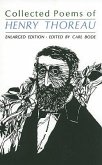Andere Kunden interessierten sich auch für
Produktdetails
- Verlag: Creative Media Partners, LLC
- Seitenzahl: 114
- Erscheinungstermin: 26. Oktober 2022
- Englisch
- Abmessung: 234mm x 156mm x 6mm
- Gewicht: 172g
- ISBN-13: 9781015410909
- ISBN-10: 1015410901
- Artikelnr.: 66472635
Hinweis: Dieser Artikel kann nur an eine deutsche Lieferadresse ausgeliefert werden.
- Libri GmbH
- Europaallee 1
- 36244 Bad Hersfeld
- gpsr@libri.de
Henry David Thoreau, born July 12, 1817, was a man of many facets: a writer, poet, philosopher, and above all, a keen observer of nature and society. An integral figure in the transcendentalist movement, Thoreau's works persist as foundational texts in American literature and philosophy. Thoreau graduated from Harvard in 1837, though he eschewed a traditional career path, seeking instead a life of simplicity and contemplation. His most renowned work, 'Walden; or, Life in the Woods' (1854), chronicles the two years, two months, and two days he spent in near-solitude, reflecting on the essence of living through close communion with nature. In this narrative, Thoreau espouses the values of self-reliance, simplicity, and a deep respect for the natural world-tenets that echo throughout his Collected Works. Thoreau was also an ardent abolitionist, as evidenced by his essay 'Civil Disobedience' (1849), which advocates for nonviolent resistance to unjust governance, inspired by his vehement opposition to slavery and the Mexican-American War. His literary style combines precise observation, personal anecdote, and a prophetic voice. Thoreau's influence extends beyond literature; he has left an indelible legacy on environmentalism, civil rights, and individual freedoms. He died on May 6, 1862, but his works continue to inspire and challenge readers to contemplate their relationship with society and the natural world.








